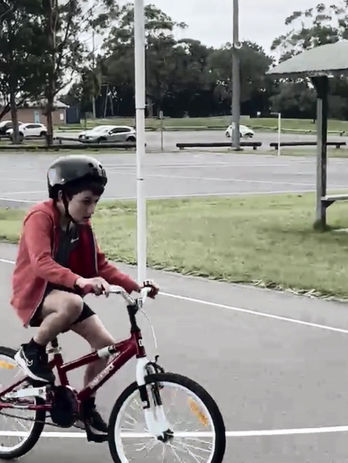





What can we help with?
Fine motor skills
These refer to the coordination of the small muscles of the hand which help to grasp, explore and manipulate smaller items such as toys, pencils, beads, scissors and feeding utensils. These are crucial foundational skills required for mastering school readiness goals such as handwriting, cutting and craft.
social skills
We help children to navigate the complexity of social interactions, help them to build meaningful relationships with others, develop their conflict resolution skills and support their social identity. We appreciate a child's individual preferences and communication styles, and value that there is no 'one size fits all' approach. We focus on enabling children to make authentic connections and have meaningful interactions with their peers, family and friends.
sleep
If bedtime is a daily battle in your household, OTs can help.
We understand the impact that poor sleep has on your child's health, energy, mood, memory and concentration. These are all incredibly important for a child's motivation to engage in daily occupations such as learning and playing. We can evaluate a range of factors to determine a holistic profile of your child's sleep and provide you with techniques to improve your child's sleep hygiene.
Handwriting
Handwriting skills require sound development of three primary areas: fine motor coordination, manual dexterity and visual motor integration skills. Handwriting difficulties that may emerge can include: fatigue and pain, letter reversals, pencil pressure, pencil grasp issues, legibility and disorganised handwriting (spatial awareness, letter sizing and letter spacing difficulties).
sensory regulation
This refers to your child's ability to interpret, process and organise sensory information from their environment. We help to develop your child's ability to maintain an appropriate level of alertness and respond to their sensory needs in order for them to function in their environment and participate in activities with success. Assessments can be provided to capture your child's unique sensory profile and assist you with individualised strategies to increase their awareness, sense of safety and self-regulation capacities.
Play
Play is a child's number one and most essential occupation for development. Play develops a child's ability to communicate with their peers and better understand the world around them. It enables children to expand their interests, develop functional skills, develop problem-solving skills, and allows expression of their experiences, thoughts and feelings. OTs can assess your child's ability to engage in pretend play, and can provide evidence-based intervention to support them with finding their interests and improving their interactions through play.
Gross motor skills
These refer to the abilities of the larger muscle groups to perform and achieve controlled and coordinated movements such as running, jumping, climbing and throwing/catching.
Good gross motor skills are beneficial for developing a child's confidence and self-esteem, increase their social opportunities by enabling them to take part in physical games with peers, reduce stress and frustration, facilitate their focus and attention in the classroom, and improve their overall health and wellbeing.
executive functioning
Executive functioning skills allow us to manage the everyday aspects of life including completing tasks, staying safe, managing time, and organising thoughts, ideas, objects and feelings. Where this is a challenge, you might see your child have difficulty with completing daily routines, starting tasks, organising belongings, remembering things, planning, impulse control, processing speed, attention, problem solving and cognitive flexibility. Occupational Therapists can assist children with these skills by providing strategies, modification to tasks or the environment, and/or education for parents and teachers to support your child's needs.
emotional regulation
Emotional regulation refers to the ability to respond to stressors, identify feelings and act upon these emotions to function within situations. Our Occupational Therapists use evidence-based emotional regulation programs to help your child increase their awareness of emotions, and develop their ability to utilise self-regulation strategies to decrease the impact of stress, navigate the challenges of daily life and enable them to function in a way that is more comfortable and meaningful for them.
self-care
We can work on developing your child's skills in completing daily living activities such as dressing, hygiene, bathing, haircuts, tying shoelaces, fastening buttons and zippers and toileting.
feeding
Is your child a fussy eater? Do they gag, refuse to eat or tantrum during mealtimes? Are you worried your child is not getting enough calories during the day? If you've answered yes to these questions, I am here to help!
I am a trained SOS (Sequential Oral Sensory) practitioner,. SOS is an evidence-based approach to help children and families with the skills to take the stress out of eating and increase a child's confidence around eating. Depending on the underlying issues, I can assess and devise a sensory motor approach to address your child's ability to eat and tolerate a wider variety of foods.
supporting parents
I believe sharing knowledge with families is key to helping clients reach their goals. I provide education to parents as part of therapy sessions to ensure continuation of therapy strategies across the child's environments. I also offer one-on-one parent consult sessions.





































